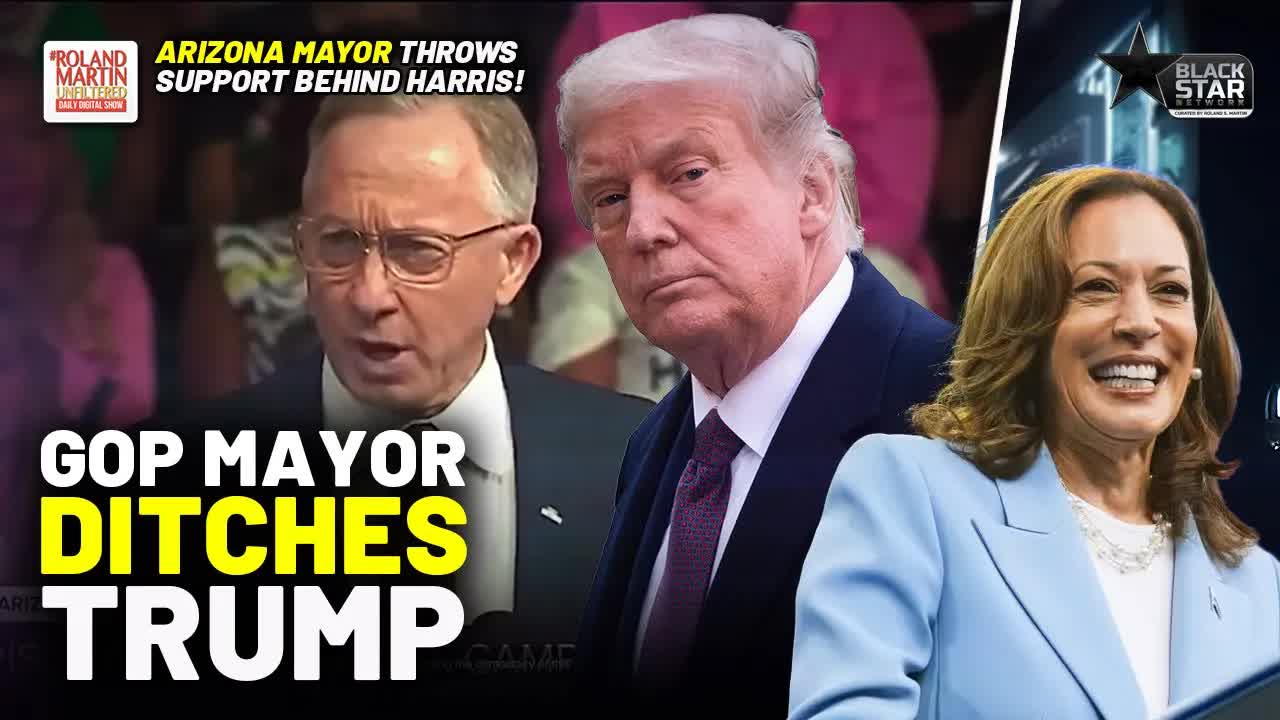In a recent rally held in Glendale, Arizona, Mesa’s Republican Mayor John Giles delivered a passionate speech that resonated with many disillusioned party members.
Standing before a gathering of supporters, Giles expressed his pride in being the mayor of Mesa but also acknowledged a sense of discomfort in the current political climate.
Giles, a lifelong Republican, did not mince words as he articulated his concerns about the direction of his party.
He remarked, “I do not recognize my party anymore,” pointing to what he perceives as an alarming takeover by extremist factions.
This shift, he argues, is pushing moderate voices out of the Republican fold, creating a rift that threatens the core values of the party.
Addressing those who find themselves in the political center, Giles urged them to reconsider their loyalty.
“You don’t owe a damn thing to that political party,” he declared emphatically, criticizing the disconnect between party leadership and the American populace.
According to him, the party’s current trajectory is detrimental, aiming to drag the nation backward rather than propel it forward.
In a heartfelt appeal reminiscent of the late Senator John McCain’s legacy, Giles called for prioritizing the nation over party allegiance.
He urged attendees to unite against Donald Trump, emphasizing the importance of safeguarding democracy, the Constitution, and the rule of law.
His remarks echoed a growing sentiment among many who feel that Trump’s leadership poses a risk to these foundational principles.
The rally also featured discussions about the broader implications of Trump’s candidacy.
Giles highlighted the growing number of individuals, including a Black conservative pastor from Texas, who are distancing themselves from Trump due to concerns about integrity.
This pastor’s rejection of Trump underscores a broader dissatisfaction with a leader perceived as morally compromised.
As the election season heats up, dissatisfaction with Trump appears to be reaching a boiling point.
Many lifelong Republicans are voicing their frustration, expressing that they can no longer support a candidate who seems to operate under a different set of rules—one that allows him to evade accountability while preaching law and order to others.
The atmosphere at the rally was charged with a sense of urgency.
Giles pointed out that figures like Trump and JD Vance are increasingly viewed as desperate, struggling to maintain their footing amid a shifting political landscape.
The mayor noted that this desperation is evident in their rhetoric, which many attendees found bizarre and disconnected from reality.
Moreover, Giles emphasized the importance of addressing issues that resonate with marginalized communities, particularly within Black culture.
He underscored the necessity for authentic representation and the need for media outlets that genuinely reflect these communities’ stories and concerns.
In a striking call to action, the rally shifted focus towards supporting Black-owned media.
Advocates stressed the significance of investing in platforms that prioritize their narratives, stating, “We cannot tell our own story if we can’t pay for it.” This plea for financial support highlights the critical role of community-driven media in amplifying voices often overlooked by mainstream outlets.
As the rally concluded, participants were encouraged to contribute to initiatives aimed at bolstering independent media.
With a goal of raising substantial funds, the organizers emphasized that financial contributions are vital for sustaining their efforts in telling untold stories and fostering genuine representation.
The gathering was not just a political rally; it was a movement—a collective yearning for change and a call for unity among those who feel marginalized by the current political discourse.
As Giles and others rally together, they are igniting a conversation that could redefine the future of the Republican Party and American politics as a whole.































